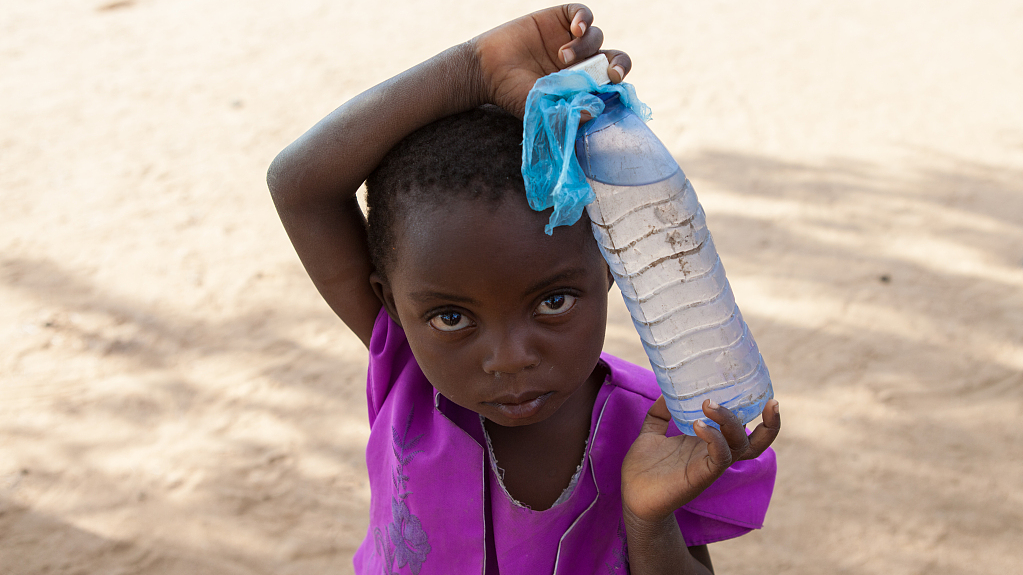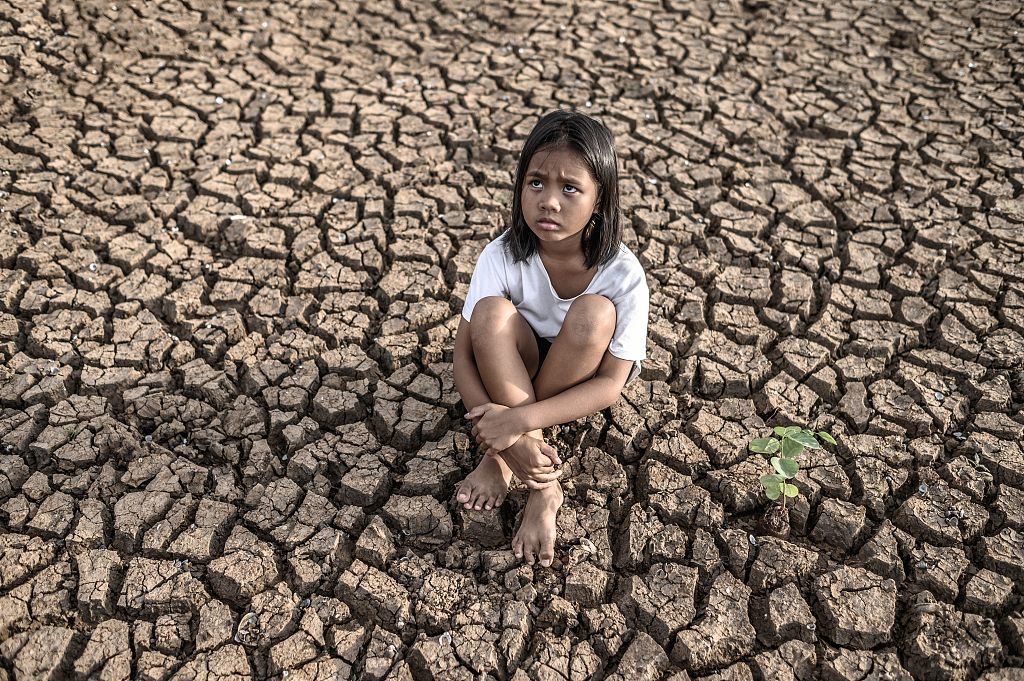One in three children exposed to life-threatening water scarcity: UN
[ad_1]
One in three children worldwide lives in areas exposed to high or very high water scarcity, according to a UN Children’s Fund (UNICEF) report released on Monday.
“The double burden of dwindling water availability and inadequate drinking water and sanitation services is compounding the challenge,” said the report, “The Climate Changed Child.” It said conditions put the 739 million challenged children at even greater risk.
“The consequences of climate change are devastating for children,” said UNICEF Executive Director Catherine Russell. “Their bodies and minds are uniquely vulnerable to polluted air, poor nutrition and extreme heat.”
“Not only is their world changing — with water sources drying up and terrifying weather events becoming stronger and more frequent — so too is their well-being as climate change affects their mental and physical health,” she said. “Children are demanding change, but their needs are far too often relegated to the sidelines.”

An Ethiopian girl carries a bottle of water. /CFP
An Ethiopian girl carries a bottle of water. /CFP
The report throws a spotlight on the threat to children, one of the ways the impact of climate change is felt.
It also outlines other ways in which children bear the brunt of the impacts of the climate crisis, including disease, air pollution, and extreme weather events such as floods and droughts. From conception until adulthood, the health and development of children’s brains, lungs, immune systems and other critical functions are affected by the environment they grow up in.
According to the report, children are more likely to suffer from air pollution than adults. Generally, they breathe faster than adults and their brains, lungs and other organs are still developing.
The report shows that those most affected live in low- and middle-income countries in sub-Saharan Africa, Central and Southern Asia, and Eastern and South-Eastern Asia.

The report said that investment in safe drinking water and sanitation services is an essential first line of defense to protect children from climate change impact. /CFP
The report said that investment in safe drinking water and sanitation services is an essential first line of defense to protect children from climate change impact. /CFP
In 2022, it said, 436 million children lived in areas facing extreme water vulnerability. Some of the most impacted countries include Niger, Jordan, Burkina Faso, Yemen, Chad, and Namibia, where 8 out of 10 children are exposed.
The report said that investment in safe drinking water and sanitation services is an essential first line of defense to protect children from climate change impact.
It was released ahead of the COP28 climate change summit, beginning in the United Arab Emirates on November 30. COP28 stands for the 28th Conference of the Parties to the UN Framework Convention on Climate Change.
Source(s): Xinhua News Agency
[ad_2]
Source link

